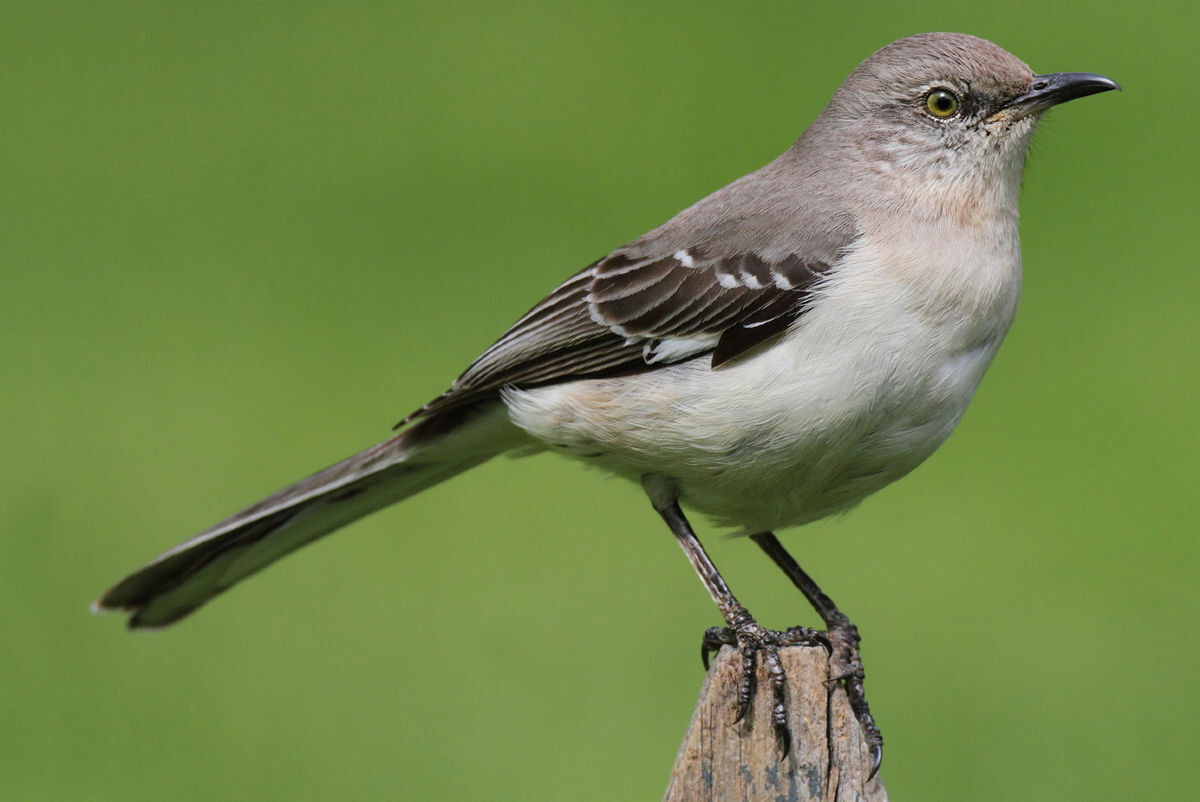
Ever wondered why mockingbirds are such fascinating creatures? Well, you're about to find out! These birds are not just your average feathered friends; they have some tricks up their sleeves that might just surprise you. From their incredible mimicry skills to their fearless nature, mockingbirds are full of surprises. Did you know that these birds can mimic the sounds of other species and even mechanical noises? Yes, that's right! Whether it's the chirping of other birds or the beeping of a car alarm, mockingbirds can do it all. So, buckle up and get ready to dive into the world of mockingbirds, where we'll uncover 10 facts that are sure to amaze you. Trust me, you won't look at these birds the same way again!
Key Takeaways:
- Mockingbirds are unique for their ability to mimic over 200 songs, which helps them communicate and attract mates. They learn new tunes throughout their lives, making them stand out in the avian world.
- These territorial birds sing at night to attract mates and ward off rivals. They are also skilled hunters, using their diverse diet and unique methods to thrive in various environments.
What Makes Mockingbirds Unique?
Mockingbirds are fascinating creatures, known for their remarkable vocal abilities. These birds can mimic the sounds of other birds, and even noises they hear in their environment, such as car alarms or construction equipment. This ability makes them stand out in the avian world.
-
Mockingbirds have a repertoire of over 200 songs. This variety is not just for show; it plays a crucial role in their communication and mating rituals.
-
Unlike many birds, mockingbirds are not born with this vast array of songs. They learn them throughout their lives, picking up new tunes from their surroundings.
Why Do Mockingbirds Sing at Night?
Ever been kept awake by a bird singing at night? Chances are, it was a mockingbird. These nocturnal serenades have puzzled many, but they serve a purpose.
-
Male mockingbirds often sing at night during mating season. This relentless nighttime singing is a way to attract a mate while also warding off potential rivals.
-
Singing at night also means less competition noise-wise, allowing a mockingbird’s song to travel further and stand out more to potential mates.
The Diet of a Mockingbird
Mockingbirds are not picky eaters. Their diet is as varied as their songbook, which helps them thrive in diverse environments.
-
These birds primarily feed on insects during the summer. Their diet shifts to fruits and berries in the colder months, showcasing their adaptability.
-
Mockingbirds have been observed using a unique method to hunt insects. They flap their wings to startle insects hidden in foliage, making them easier to catch.
Mockingbirds and Their Territorial Behavior
Mockingbirds are fiercely territorial. They do not hesitate to defend their territory from intruders, sometimes going to great lengths to do so.
-
These birds are known to attack much larger animals, including cats, dogs, and even humans, if they feel their nest is threatened.
-
A mockingbird’s territory can span up to several acres. Within this area, they vigorously patrol and defend their space, especially during the breeding season.
The Role of Mockingbirds in Literature and Culture
Mockingbirds hold a significant place in literature and culture, symbolizing innocence and the harm that comes from wrongfully harming something pure.
-
Harper Lee’s novel "To Kill a Mockingbird" is perhaps the most famous reference, using the bird to symbolize the idea of innocence and the destruction of that innocence.
-
In many cultures, mockingbirds are seen as symbols of intelligence, creativity, and communication, reflecting their diverse vocal abilities and adaptability.
A Final Peek at Mockingbird Mysteries
Mockingbirds, with their impressive mimicry skills and pivotal role in ecosystems, are truly fascinating creatures. We've journeyed through their world, uncovering facts that showcase their uniqueness, from their ability to mimic a vast array of sounds to their protective parenting behaviors. These birds are not just background characters in our daily lives but are key players in the biodiversity of their habitats. Understanding and appreciating the complexity of these feathered friends can inspire a greater commitment to protecting their environments. Let's carry forward the curiosity and respect for nature that mockingbirds have sparked in us, remembering that every creature has its own set of remarkable traits and stories. Here's hoping these insights have not only informed but also enriched your appreciation for the natural world. Keep your ears open; you never know what a mockingbird might teach you next.
Frequently Asked Questions
Was this page helpful?
Our commitment to delivering trustworthy and engaging content is at the heart of what we do. Each fact on our site is contributed by real users like you, bringing a wealth of diverse insights and information. To ensure the highest standards of accuracy and reliability, our dedicated editors meticulously review each submission. This process guarantees that the facts we share are not only fascinating but also credible. Trust in our commitment to quality and authenticity as you explore and learn with us.


